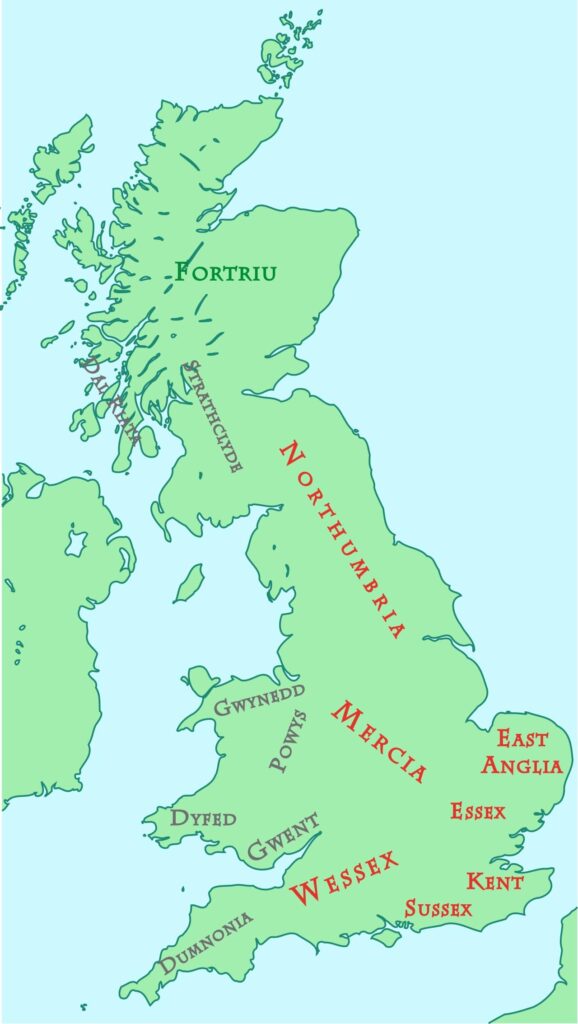The Seven Kingdoms of Old England: Wessex

Of the three major Anglo-Saxon kingdoms, Northumbria, Mercia and Wessex, Wessex was the last to achieve prominence. Nevertheless, it was the kings of Wessex who eventually became the kings of a unified England. However, there was little to suggest their eventual status in the founding of Wessex.
As with the other kingdoms, the king lists go back to a founder, Cerdic, from whom the ruling dynasty drew its legitimacy, but there is little to prove that the kings who came after Cerdic, the Cerdicings, were actually related to their supposed forebear. According to the account in the Anglo-Saxon Chronicle, Cerdic landed on the Hampshire coast with five boatloads of men in AD 495, establishing a kingdom on the south coast and gradually expanding inland and to the west. However, Cerdic is a Celtic name, not a Germanic one, so some scholars have speculated that the early rulers of Wessex were of Anglo/British stock.
Wessex expanded westward, at the expense of the Britonnic kingdoms, while its northern expansion was checked by the increasing power of the Mercians: the River Thames marked the effective boundary between the two kingdoms. During the eighth century, when Mercian supremacy was at its height, Wessex retained its independence to a greater degree than most other kingdoms, while its kings continued to push westwards, subjugating the Britonnic kingdom of Dumnonia (Devon) by early in the ninth century.
In 851, a Viking army landed in Wessex but was decisively defeated at the Battle of Aclea. So when the Vikings returned in 865, the Great Heathen Army avoided the kingdom of the West Saxons. It was only when the other three major Anglo-Saxon kingdoms had been subdued that the Great Army turned its attention to Wessex, the last kingdom.
Sitting uncomfortably on the throne of Wessex was a young man named Æthelred, who proved far more ready than his infamous descendant, with his younger brother, Alfred, as his chief commander. At the Battle of Ashdown in 871, Æthelred and Alfred inflicted the first significant defeat on the Great Army and the Northmen withdrew.
But Æthelred did not long survive the victory, which left his young brother, Alfred, the last king of the Anglo-Saxons. There were no other viable claimants. Remove Alfred, and the last kingdom would fall. Which was precisely what the Danes attempted, launching a mid-winter raid into Wessex that caught Alfred completely by surprise.
Fleeing into the marshes of the Somerset Levels with a handful of men, Alfred left the Vikings in control of the last kingdom. But Alfred returned. He defeated the Danes at the Battle of Edington in one of the most crucial battles in English history. With some breathing space, Alfred set about remaking his kingdom. His first aim was to make it secure against future Viking raids and then to reconquer the country. Alfred achieved his first aim but he had to leave the reconquest to his children.
Under the remarkable leadership of Alfred’s son and daughter, Edward and Æthelflæd, who became the effective ruler of Mercia, the Danelaw was reconquered and it was Æthelstan, Alfred’s grandson, who united England under his leadership. The king of the West Saxons was now the king of England. It was an extraordinary achievement by an extraordinary family.
0 Comments